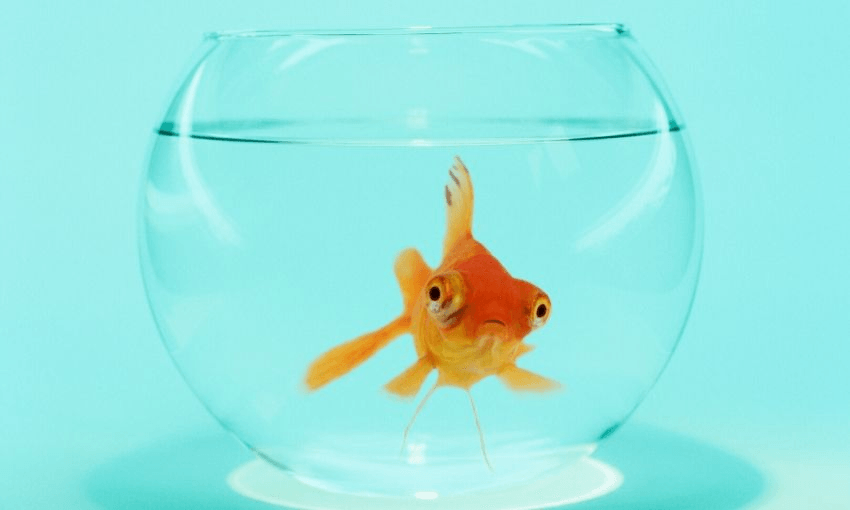TL;DR: you probably will read a book again. Maybe even write one.
How’s your brain been? Quite shite? Same. Anyway, after many fits and starts and much staring out the window and also rewatching Twilight, here is a Q&A with very patient and busy clinical psychologist Dr Kimberly Falconer. (Falconer, in lockdown with her husband and children, is a postgraduate lecturer at Massey and works for the NZ Respiratory & Sleep Institute. She has also been a senior clinical psychologist at the Anxiety New Zealand Trust.)
The Spinoff: I keep picking up a novel and reading two pages and putting it down again. It’s like my brain is full. Or frozen. It started about two minutes after the prime minister announced we were going into lockdown. What’s going on?
Kimberly Falconer: In a nutshell – anxiety! A completely understandable response right now. Within minutes, we suddenly found ourselves in a world filled with uncertainty, overwhelming amounts of jobs and tasks to manage. Not only were the financial and health risks extremely real, but we were also suddenly without the everyday supports (and comforts!) that we had so easily taken for granted. We are clever creatures and it’s correct to feel anxiety in a situation like this, where the threat is real. Hyper-vigilance will take over.
When we experience too much stress, our ability to pay attention in helpful ways, or use our memory or problem-solving abilities, can suffer. It most certainly will feel like your brain is both full and frozen at the same time.
The thing is though, I’m not consciously worrying about Covid-19 and my lockdown life is feeling pretty normal now, so why has my brain not caught up?
There are lots of different ways that the stress of the current situation can be playing out for us. Even if we aren’t in a danger zone, so to speak – ie not being essential workers, or having no underlying health concerns or significant risk factors – the environment is still very atypical. Any sense of normal living is still within a context of having restricted access to normal coping mechanisms and supports. So although it might not be a conscious stress or worry that preoccupies us, it makes sense that an element of anxiety is still interfering with aspects of our living.
The sense of uncertainty is pronounced and for many people it’s actually only when they stop to relax or do a pleasurable task that anxiety becomes obvious. So perhaps if reaching for a book or something to read or write is usually a relaxing task, this is where anxiety might be most noticeable at the moment. We see this a lot in clinical practice and it’s most unsettling for people. It sets in motion additional stress, as people understandably get bothered that their ability to focus, or relax, is compromised. They start to worry that something serious is going on and it’s this reaction to the situation that often exacerbates or maintains the problem.
Will our attention spans stretch out again once we have more certainty, do you think? Or is this something we’re going to have to specifically work on?
It makes sense that as the level of stress or anxiety around us decreases, our attention spans should stretch out again, as we are able to focus more and are less hyper-vigilant to signs of danger. The length of our attention span links to the level of information processing or meaning and memory we are able to make, so all around, this is a really good thing. But it’s also important to understand that this snapshot in time is probably highlighting something that we have known is occurring for a while now: that our attention spans are decreasing over time. It’s widely believed that our lifestyles, with increasing screen usage and lots of distractions and pressure for multi-tasking, are contributing to this. So whether we see this as a consequence of the lockdown, or a more broad experience, it’s certainly something worth focusing on (excuse the pun!).
Think about attention span as a muscle. Working on “fitness” most certainly doesn’t have to be complicated. Start small in terms of goals (whether it’s the amount of time to focus, or small broken-down tasks to complete) and build up incrementally. Try to work on the most important tasks at the times that best suit you, whether it’s early in the morning, or at a time with minimal distractions. Think of energy, not time, as being the main currency of performance. Also, ensure you are working on meaningful things: prioritise. And to support this, do the lifestyle things that help to mitigate anxiety and support good information processing – good sleep, exercise, and importantly, a good mix of pleasure and mastery through the day.
Right last question. What are you reading? It’s Mantel isn’t it. Just casually knocking off the trilogy.
I’m reading a mixture of Where’s Spot, the Famous Five, home renovation catalogues and… I’ve just started The Other Side of Happiness by Brock Bastian, which is proving pretty interesting so far. Over the last two years my husband and I have perfected The Little Yellow Digger books in rap version. So much more bearable.



